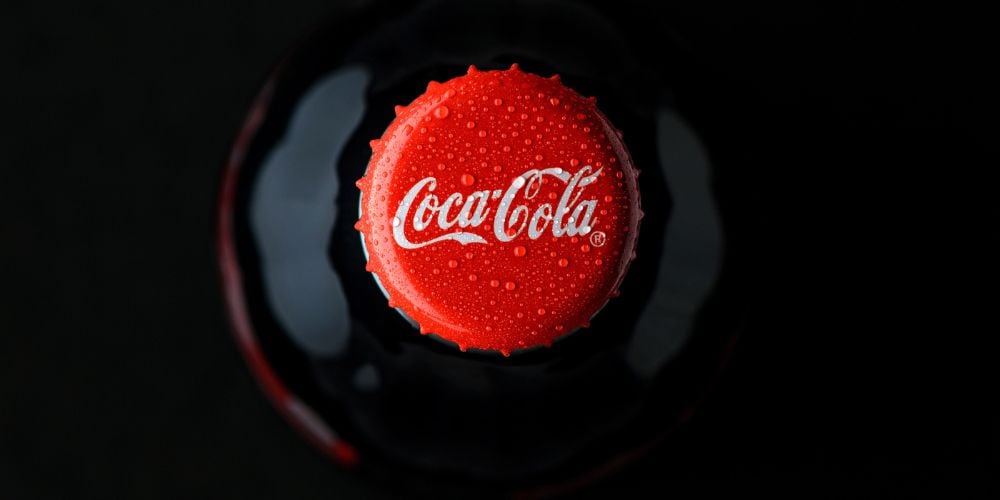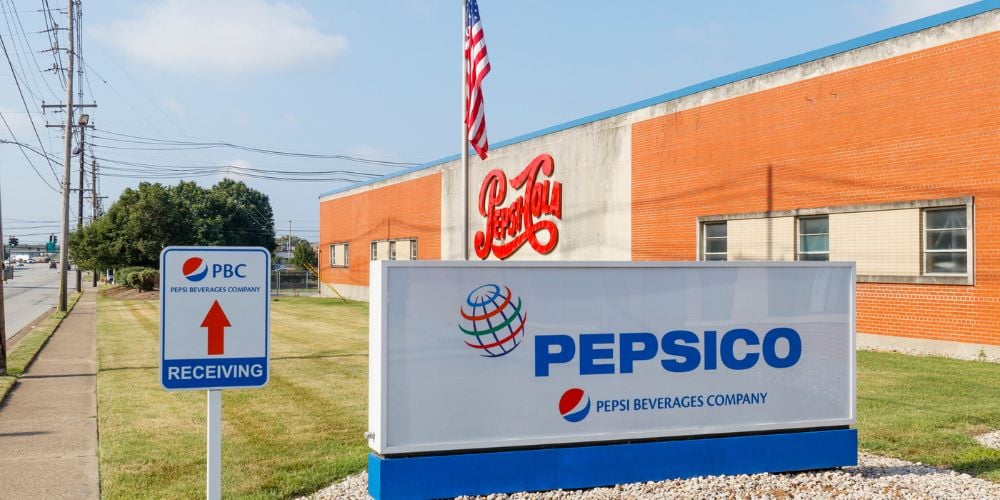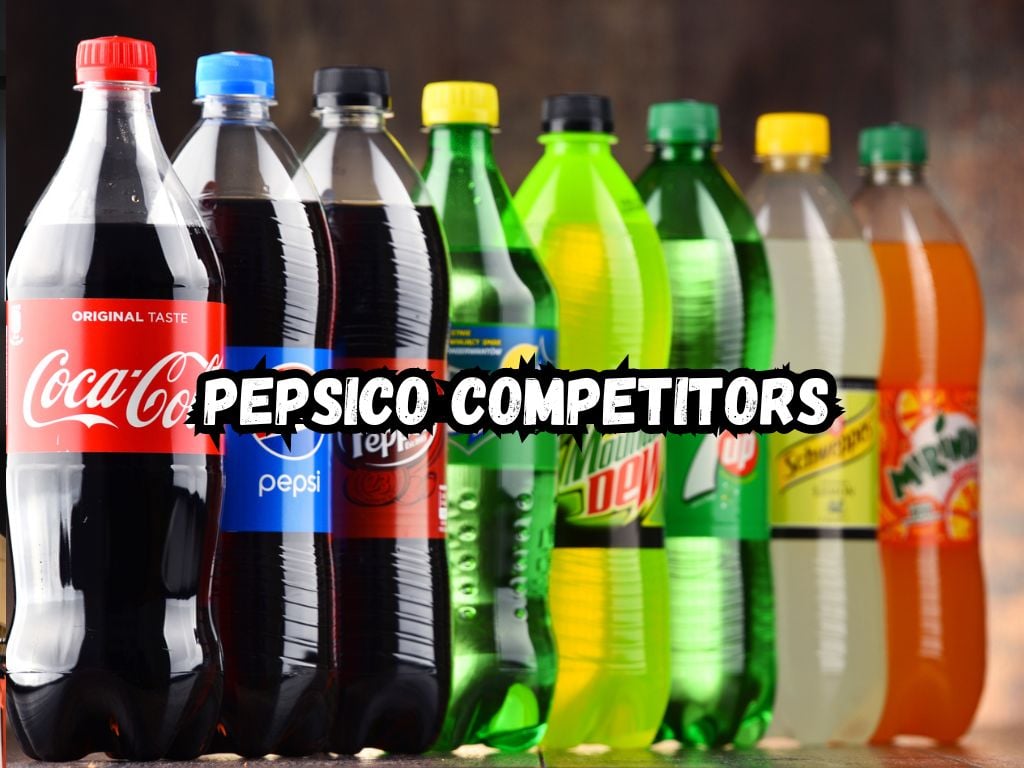When it comes to the food and beverage industry, PepsiCo stands tall as one of the leading multinational corporations.
However, to truly understand the dynamics of the industry and assess PepsiCo’s market position, it is essential to analyze its competitors.
By examining the key players in the market, their products, strategies, and market share, we can gain valuable insights into the industry landscape.
In this article, we will delve into the world of PepsiCo competitors, exploring their strengths, weaknesses, and the challenges they pose.
Understanding Pepsico Competitors
Before diving into the specific competitors, it is important to grasp the concept of competition in the food and beverage industry.
Competition arises when multiple companies vie for the attention and spending power of consumers.
By understanding this competitive landscape, PepsiCo can make informed decisions to maintain its market presence and grow its share.

Top Competitors of PepsiCo
Coca-Cola Company
The Coca-Cola Company is undoubtedly one of PepsiCo’s biggest rivals worldwide.
With a rich history and a strong brand recognition, Coca-Cola competes with PepsiCo not only in the cola segment but also in various other beverages.
Operating in over 200 countries, Coca-Cola boasts an extensive product portfolio, including carbonated soft drinks, juices, teas, and more.
Coca-Cola’s market share in the carbonated soft drinks segment is significant.
The company has maintained its competitive position through its strong consumer brand loyalty and aggressive marketing campaigns targeting both traditional and emerging markets.
Coca-Cola’s iconic brands like Coke, Sprite, and Fanta continue to resonate with consumers, making it a formidable rival for PepsiCo.
Mondelez International
Mondelez International, formerly part of Kraft Foods, positions itself as a global snacking powerhouse.
With well-known brands such as Oreo, Cadbury, and Toblerone, Mondelez offers a wide range of snacks and confectionery products.
While not a direct competitor in the beverage market, Mondelez competes with PepsiCo on store shelves and for consumer attention.
Mondelez has managed to establish a substantial market presence in the snacking industry through its focus on innovation and brand-building.
The company consistently introduces new flavors and variations of its popular snacks, appealing to changing consumer tastes.
With its vast product portfolio and strong distribution network, Mondelez remains a key rival for PepsiCo’s snack portfolio.
Kellogg
Kellogg, a prominent player in the breakfast cereal industry, competes with PepsiCo on the breakfast table.
With brands like Special K, Frosted Flakes, and Pop-Tarts, Kellogg offers a variety of breakfast products to consumers.
As health-consciousness grows, Kellogg’s emphasis on nutritious breakfast options puts it in direct competition with PepsiCo’s Quaker Oats and other breakfast options.
Kellogg has been focusing on diversifying its product portfolio beyond traditional cereals by incorporating healthier ingredients and expanding into the snacks and convenience food segments.
The company’s strong brand recognition and consistent product innovation make it a formidable competitor for PepsiCo’s breakfast products.
Red Bull
In the energy drink segment, Red Bull is a formidable competitor for PepsiCo. Known for its iconic blue and silver cans and aggressive marketing campaigns.
Red Bull has managed to carve out a significant market share for itself. With a focus on the younger demographic and extreme sports, Red Bull has captured a loyal consumer base that PepsiCo aims to tap into as well.
To counter Red Bull’s dominance, PepsiCo needs to carefully strategize its energy drink offerings.
While PepsiCo’s Mountain Dew energy drink has gained some traction, Red Bull’s market penetration and brand loyalty remain strong.
PepsiCo needs to leverage its distribution network and position its energy drinks as competitive alternatives to Red Bull to capture a larger market share.
Danone
As a global leader in the dairy industry, Danone poses a strong competition to PepsiCo in the yogurt and dairy-based products segment.
With brands such as Activia and Oikos, Danone has successfully established itself as a go-to choice for consumers seeking healthy dairy products.
PepsiCo’s dairy offerings, including its Tropicana juices and Gatorade, may face overlap and competition with Danone’s portfolio.
Danone has prioritized health and wellness trends, introducing plant-based dairy alternatives and probiotic-rich products to meet evolving consumer preferences.
PepsiCo will need to invest in research and development to stay competitive in the dairy segment and ensure that its offerings align with changing consumer demands.
Conagra Brands
Conagra Brands, a food conglomerate, competes with PepsiCo in various segments, including snacks, frozen foods, and condiments.
With popular brands like Slim Jim, Chef Boyardee, and Hunt’s, Conagra offers a wide array of food products.
Through innovative product development and acquisitions, Conagra continues to challenge PepsiCo’s products on grocery store shelves.
Conagra Brands’ strategy centers around acquiring and revitalizing well-known brands, expanding their market presence, and appealing to consumers through inventive packaging and product innovation.
PepsiCo needs to continuously innovate and invest in its snack and convenience food offerings to stay competitive against Conagra’s evolving product portfolio.

Other Notable Competitors
While the aforementioned companies are the major rivals, it is worth noting that there are other competitors in the industry as well.
Britvic, a UK-based soft drinks company, and Monster Beverage, an energy drink manufacturer, also pose a competitive threat to PepsiCo.
These players focus on niche markets and leverage specific marketing strategies to gain traction.
Frequently Asked Questions
Who are PepsiCo’s main competitors worldwide?
PepsiCo’s main competitors worldwide include Coca-Cola, Mondelez International, Kellogg, Red Bull, Danone, and Conagra Brands, among others.
What are the key factors contributing to competition in the food and beverage industry?
The key factors contributing to competition in the food and beverage industry include product innovation, brand recognition, market share, pricing strategies, distribution networks, and effective marketing campaigns.
PepsiCo’s market share varies across different markets and segments. While it faces strong competition from Coca-Cola globally, its market share may vary depending on geographical location and product category.
What strategies does PepsiCo employ to stay competitive in the market?
To stay competitive, PepsiCo employs various strategies, including product diversification, brand building, strategic acquisitions, continuous innovation, and effective marketing campaigns.
Are there any indirect competitors of PepsiCo that consumers should be aware of?
Indirect competitors of PepsiCo include companies operating in niche markets or those offering alternative products that cater to specific consumer preferences. It is essential for consumers to be aware of these alternatives and make informed choices.
Conclusion
Analyzing PepsiCo’s competitors provides valuable insights into the food and beverage industry landscape.
By understanding the strategies, strengths, and weaknesses of these key rivals such as Coca-Cola, Mondelez International, Kellogg, Red Bull, Danone, and Conagra Brands, PepsiCo can optimize its market position and develop effective strategies to stay competitive.
Continuously monitoring the competitive landscape will enable PepsiCo to adapt to changes and maintain its position as a leading player in the industry.
With the right approach, PepsiCo can leverage its strong brand portfolio and distribution network, and focus on innovation to outperform its rivals and cater to evolving consumer preferences.


 Tags:
Tags:










